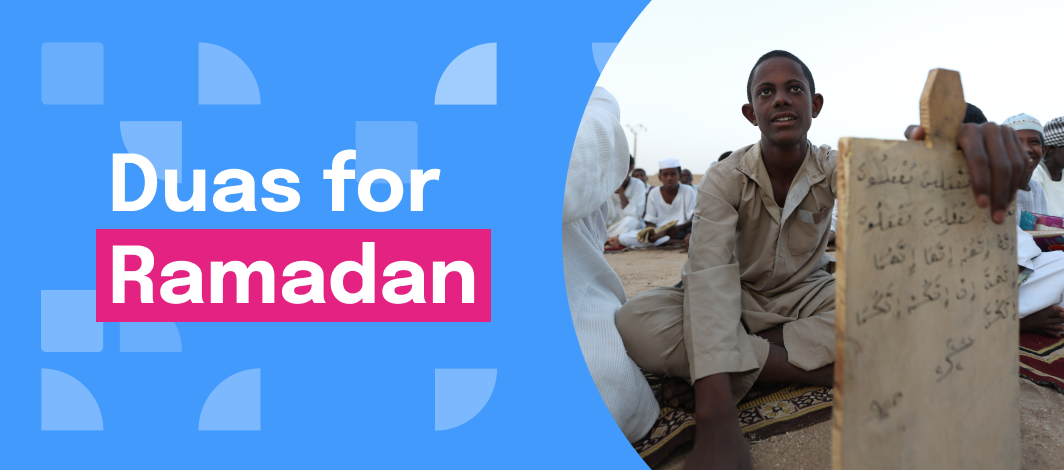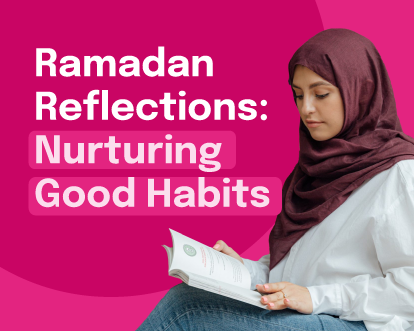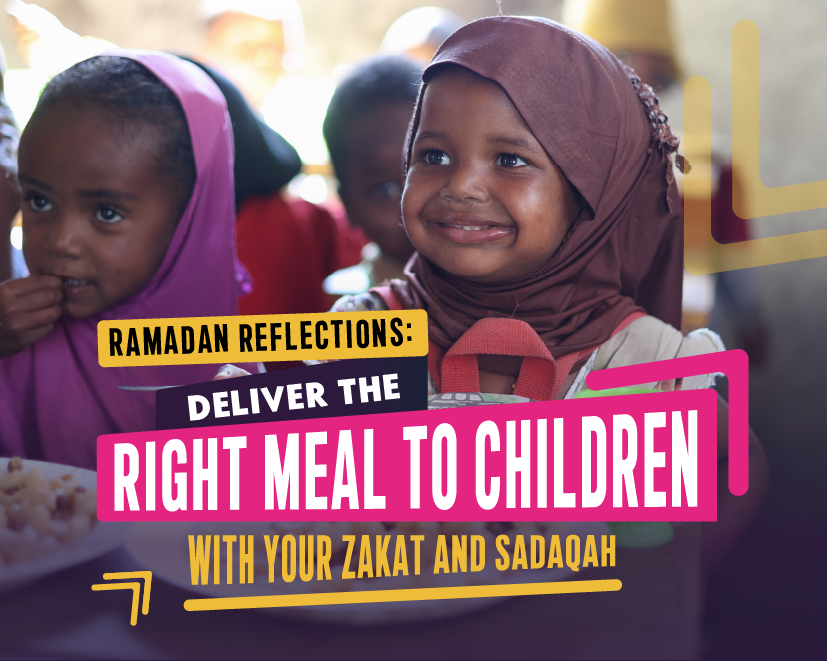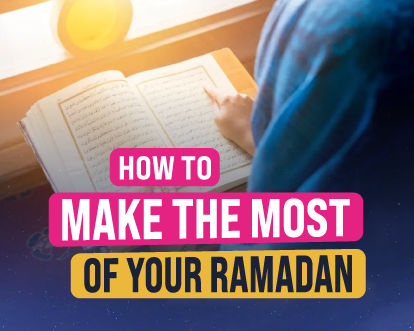Reciting Duas in Ramadan
Ramadan is the holy month of fasting, prayer, and reflection in the Islamic faith. It is a time of spiritual cleansing and rejuvenation, where Muslims around the world dedicate themselves to the worship of Allah (SWT) and seek forgiveness for their sins.
As Ramadan approaches we must stay mindful of the will of Allah for us in this holy month.
One of the most important aspects of Ramadan is the recitation of duas, or supplications, which are special prayers that Muslims recite during this blessed month. These special duas serve as a way to connect with Allah, seek guidance and blessings, and ask for forgiveness for any wrongdoings.
How to Show Almighty Allah Your Intentions of Fasting
One of the most important aspects of fasting in Ramadan is the dua, or supplication, that is recited to seek Allah's blessings and guidance during the fast.
The dua for fasting in Ramadan is a powerful prayer that Muslims recite before beginning their fast. It is a way to seek Allah's help and guidance during the fast, and to ask for forgiveness for any sins or wrongdoings. This dua is typically recited in the early mornings of the days of Ramadan, at the pre-dawn meal, known as suhoor, and is an essential part of the fasting ritual.
The dua for fasting in the month of Ramadan is as follows:
"Wa bisawmi ghadinn nawaiytu min shahri Ramadan"
This translates to:
"I intend to keep the fast tomorrow in the month of Ramadan"
The Importance of Intention in Our Duas
While this dua may seem simple, it is actually filled with deep meaning and significance. This dua conveys our will to pay special devotion to almighty Allah (SWT).
By reciting this dua, Muslims are expressing their intention to fast for the sake of Allah (SWT). As his righteous servants we are seeking his blessings and guidance throughout the day, and to stay on the right path that Allah has ordained for us.
The act of fasting is not just about abstaining from food and drink, but is also a way to purify the body and the soul, and draw closer to Allah. Ramadan helps many muslims find a renewed sense of faith, and a deeper connection with our creator.
Intentions are of paramount importance in Islam. Especially in Ramadan, Allah will reward us greatly just for having the intention of carrying out a good deed. Oftentimes Muslims will have the intention of praying salah and forget when it comes time to pray. In this case they would still receive some level of reward from Allah.
Supplications, or duas, are one of the best ways to convey our intent to Allah, so it's crucial that we make these prayers with a sincere heart.
Duas are an integral part of Ramadan, as they are a means of seeking Allah's blessings, guidance, and forgiveness. While there are many duas that are recited throughout the month, and there is no "best dua", there is one in particular that holds great significance for Muslims: the dua for Laylatul Qadr.
The Signifcance of Laylatul Qadr
Laylatul Qadr or Laylat Al Qadr, translates into english as "Night of Power" or "Night of Decree." It is believed to be on this exceptionally special night, when the first verses of the holy Quran were revealed to Prophet Muhammad by Allah through the Angel Gabriel.
Laylatul Qadr falls during the last ten nights of the month of Ramadan. One of these nights brings immense rewards to the obedient servants who dedicate time to Allah (SWT).
Those who show fierce devotion to Allah in these last ten nights of Ramadan, by giving charity, making dua, and praying salah, will receive Allah's blessings the most.
It is not known exactly which day the night of power will fall on each year, but it is believed to occur on one of the odd-numbered nights during the last 10 days of Ramadan. According to Islamic teachings, the night of power is better than a thousand months of worship, and the rewards of worshipping the creator on this night are multiplied many times.
Why is Laylat Al Qadr So Important?
The night of power is a time of great spiritual significance for Muslims. It is believed to be a night of immense rewards, forgiveness, and mercy from Allah. Muslims all around the world dedicate this night to worshipping and seeking the pleasure of Allah.
It is considered to be an opportunity for Muslims to increase their good deeds and gain the reward of worshipping Allah for more than a thousand months.
Muslims believe that Laylat Al Qadr is a night when Allah's mercy is at its peak, and the gates of forgiveness are open wide. It is a night when Allah listens to the prayers of his servants and grants their wishes. It is also believed that on this night, the destiny of every person is written for the upcoming year.
Abu Hurayrah narrated that the prophet Muhammad (SAW) said:
"Whoever spends the night of Laylat Al Qadr in prayer out of faith and in the hope of reward, his previous sins will be forgiven."
What is the Laylatul Qadr Dua?
One of the most revered Hadiths about the night of power recounts a conversation between Allah's messenger, the Prophet Mohammad, and his most beloved wife Aisha.
She asked the last prophet how she should worship Allah on the night of power, to which he responded by advising her to recite this specific dua for Laylatul Qadr, with a pure and sincere heart:
“Allahumma, innaka Afuwwun Karimun, tuḥibbu al-afwa fa'afu anna”
Which translates to:
“O Allah, indeed You are Pardoning and Generous; You love to pardon, so pardon us.”
Which Dua is Used for Breaking Your Fast?
There are many duas that are of extreme importance in Ramadan. However the one most commonly recited will be the dua for breaking your fast in Ramadan.
Everyday the believing servants who have fasted will recite this prayer at maghrib time, when the Sun is going down.
This dua is recited by millions across the globe who participate in fasting the month of Ramadan.
The Dua for the First Ashra of Ramadan
In Ramadan, dua is one of the most powerful forms of worship. The rewards for all your duas are multiplied manyfold. It is for this reason, among others, that we must share Allah's enthusiasm and love for the sacred month.
The holy month of Ramadan is split up into three ashras, each lasting ten days, and each Ashra has its own significance.
The first ten days of Ramadan are known as the Ashra of Mercy. Muslims believe that Allah's mercy is at its highest during this period.
It is a time for seeking forgiveness and showing compassion towards others. The Prophet Muhammad (PBUH) is reported to have said:
"Whoever does not show mercy to others will not be shown mercy."
Muslims are encouraged to perform acts of kindness, give to charity, and forgive others during this time.
The dua for the first ashra of Ramadan is of utmost importance and is often recited throughout the first ten days of Ramadan.
As we seek protection from Allah in this sacred month, we must also spread peace among the Ummah but also to others.
This allows us to set a good example and show Islam's divinity to the unbelievers.
How to Maximise Your Blessings in Ramadan
As muslim's we should strive to find Allah's (SWT) straight path and participate in as many good deeds as we can.
The most simple way of doing this is to act in a way that Allah wills us to, by making dua, reading the holy scripture, and praying our salah so we can receive all the blessings Allah (SWT) wishes to grant us.
By continuing our 5 daily salah and other obligatory acts of worship we can increase our rewards and blessings manyfold. This coupled with fasting, reciting the special duas of Ramadan, and treating others with respect, can lead to unparalleled levels of blessings from our almighty creator.








